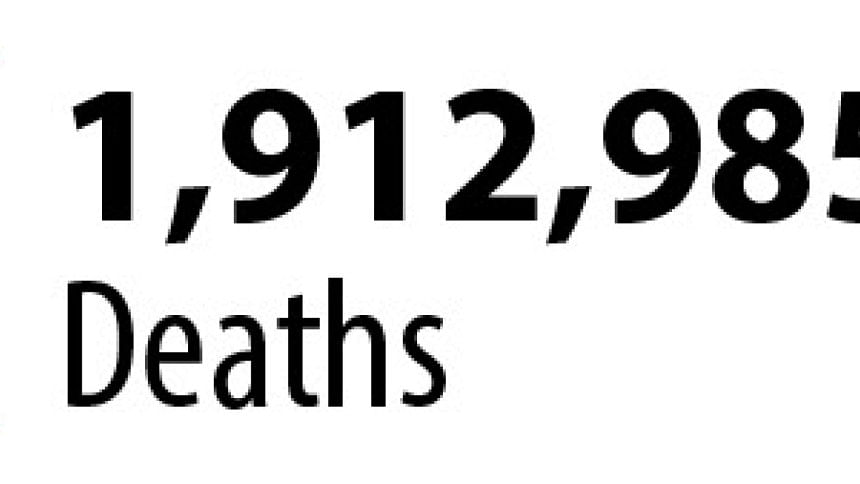Covid Vaccines: Poorest nations can expect doses within weeks

The world's poorest countries can expect to start receiving their first Covid-19 vaccine doses between the end of January and mid-February, the World Health Organization said Thursday.
Vaccination is already under way in some of the world's wealthiest nations, including the United States, Britain, European Union countries and Canada.
Covax, the globally-pooled vaccine procurement and distribution effort, has struck agreements to secure two billion doses -- and the first of those will start rolling out within weeks, said the WHO's head of vaccines, Kate O'Brien.
Covax aims to secure vaccines for 20 percent of the population in each participating country by the end of the year, with funding covered for the 92 lower- and lower-middle income economies involved in the scheme.
It is co-led by the WHO, the Gavi vaccine alliance and the Coalition for Epidemic Preparedness Innovations (CEPI).
Asked how quickly lower-income African nations would get vaccines, O'Brien told a WHO live social media event: "The facility has access to over two billion doses of vaccine.
"We will start to deliver those vaccines probably by the end of January, and, if not, certainly by early February and mid-February.
"That's how countries in Africa and South Asia, and other countries around the world of these 92 that are less able to afford vaccines, are actually going to get vaccines."
VACCINES PIPELINE
The WHO granted emergency validation to the Pfizer-BioNTech vaccine on December 31, paving the way for countries worldwide to give swift approval to its import and distribution.
According to the WHO's overview of candidate vaccines, 63 have been tested on humans, 21 of which reached final-stage mass testing.
A further 172 candidate vaccines are being developed in laboratories with a view to eventual human trials.
"There is a really big pipeline of vaccines that are coming through," said O'Brien.
"We are in active review of the data on other vaccines and we do expect to be emergency-use listing additional vaccines in the coming weeks and the next months.
"We have 15 manufacturers that have contacted us believing that they have the data that are required to meet these highest standards."
As for the new mutations of the virus detected in Britain and South Africa, WHO experts have said that while they seem more transmissible, there is no indication that the current vaccines would not work against those variants -- and the vaccines are easily adaptable in any case.
"The evaluation about whether the existing vaccines will be impacted at all is under way," said O'Brien.
However, "the kinds of changes being seen in these variants are not felt to be likely to change the impact", she added.
'NEUTRALISES KEY MUTATION'
German company BioNTech said yesterday a preliminary study shows that its vaccine works against the key mutation in coronavirus variants uncovered in Britain and South Africa.
Tests have shown that "antibodies from people who have received the Pfizer-BioNTech Covid-19 vaccine effectively neutralise SARS-CoV-2 with a key mutation that is also found in two highly transmissible strains," said the German company of the vaccine it developed with US group Pfizer.
The EU has struck a deal to double its supply of the BioNTech/Pfizer coronavirus vaccine to 600 million doses, European Commission chief Ursula von der Leyen said yesterday.
Authorities in the 27-nation bloc have been hit with rising criticism that the vaccine rollout that started December 27 has been too slow, especially compared with countries such as the United States or former EU member Britain, reports AFP.
Britain's regulators and France's national health authority gave the green light to a jab developed by US firm Moderna yesterday.
In India, the second phase of the nationwide vaccination drive against Covid-19 took place across 737 districts yesterday. The first massive dry run was held on January 2.
The Himalayan kingdom of Bhutan recorded its first virus death after 10 months of seeking to isolate itself from the pandemic, with a 34-year-old man dying after testing positive on December 23.
ARTHRITIS DRUGS
Treating critically ill Covid-19 patients with Roche's Actemra or Sanofi's Kevzara arthritis drugs significantly improves survival rates and reduces the amount of time patients need intensive care, study results showed on Thursday.
The findings, which have not yet been peer-reviewed, showed that the immunosuppressive drugs - Actemra, also known as tocilizumab, and Kevzara, also known as sarilumab - reduced death rates by 8.5 percentage points among patients hospitalised and severely ill with the pandemic disease, reports Reuters.
Meanwhile, China has sealed off two cities south of Beijing, cutting transport links and banning millions of residents from leaving, as authorities move to stem the country's largest Covid-19 outbreak in six months.
The pandemic has so far broadly been brought to heel by Chinese authorities since its emergence in Wuhan in late 2019, with small outbreaks swiftly snuffed out using mass testing, local lockdowns and travel restrictions.


 For all latest news, follow The Daily Star's Google News channel.
For all latest news, follow The Daily Star's Google News channel. 




Comments